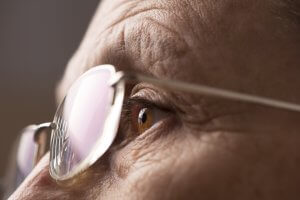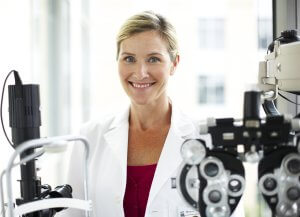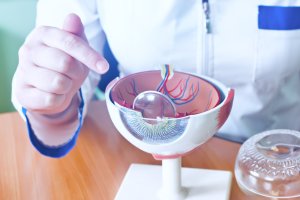Macular Degeneration Treatment in Wyomissing, PA

Voted Best of Berks—
eight years in a row!
If you believe you may have symptoms of age-related macular degeneration (AMD) and are interested in the latest treatment options, Eye Consultants of Pennsylvania in Wyomissing, PA can help. Our highly skilled retina specialists have an excellent track record of success.
Eye Consultants of Pennsylvania is the leading ophthalmology practice in Berks, Lancaster, Lebanon, Montgomery and Schuylkill counties, and has five convenient locations in Wyomissing, Pottsville, Pottstown, Lebanon and Blandon.
Our team includes nationally-recognized, board certified ophthalmologists and ophthalmic surgeons who have been trained by some of the most respected medical facilities in the world and have vast clinical experience in a wide variety of eye disease and surgical services, including AMD.
What is Macular Degeneration?
Macular degeneration, or age-related macular degeneration (AMD), is an eye condition that most often affects older adults. It is a deterioration or breakdown of the eye’s macula and one of the leading causes of decreased vision in Americans over the age of 50. It typically comes in two forms, known as “dry” AMD and “wet” AMD. Dry AMD is the most common form. Wet AMD is less common and more severe.
The Stages of Macular Degeneration
There are three stages of AMD – early AMD, intermediate AMD and late AMD. They are typically characterized by the size and number of “drusen,” or yellow deposits, underneath the retina. It is normal to develop some very small drusen as you age, but the presence of medium-sized to large-sized drusen may be an indication that you have AMD.
Early AMD – The presence of medium-sized drusen, which are approximately the width of a human hair, may indicate that you have early AMD. In most individuals, early AMD shows no symptoms or loss of vision. The drusen can only be detected during an eye exam.
Intermediate AMD – This stage of AMD is characterized by the presence of large-sized drusen, pigment changes in the retina, or both. Again, the drusen can only be detected during an eye exam. Most people do not experience any symptoms, and overall vision loss may go unnoticed, particularly if you have AMD in only one eye.
Late AMD – Individuals with late AMD already have some loss of vision but, if the AMD is only in one eye, the vision loss may not be noticeable. There are two forms of late AMD:
- Dry AMD – Nearly 90% of all people with AMD have dry AMD, and all people who have wet AMD had the dry form first. Scientists are still not sure what causes it, but studies suggest that part of the retina becomes diseased, leading to the slow breakdown of the macular cells and a gradual loss of central vision.
There currently is no form of medical treatment for dry AMD that can prevent vision loss. Studies by the National Eye Institute
have indicated that taking certain vitamins and minerals might reduce the risk of developing advanced AMD.
- Wet AMD – This less common form of AMD is responsible for the most serious loss of vision. Wet AMD occurs when new blood vessels grow underneath the retina and leak blood and fluid under the macula. This causes rapid damage to the macula and can lead to blind spots in your central vision.
Wet AMD can be treated with laser surgery, photodynamic therapy (PDT) with or without injection of steroids into the eye, and the
painless injection of drugs that attempt to stop abnormal blood vessel growth in the retina. However, the disease and loss of vision
may still progress even with treatment.
To learn more about macular degeneration treatment in Wyomissing, PA, contact Eye Consultants of Pennsylvania and our retinal specialists.
Find a Doctor
Physician information including education, training, practice location and more.
Schedule an Appointment
Call 800-762-7132 or make an appointment online.





